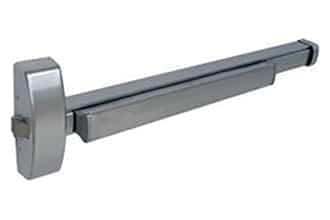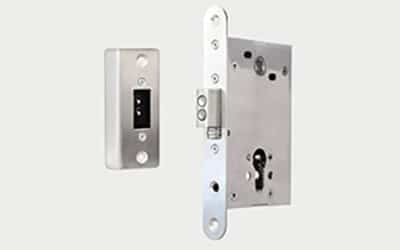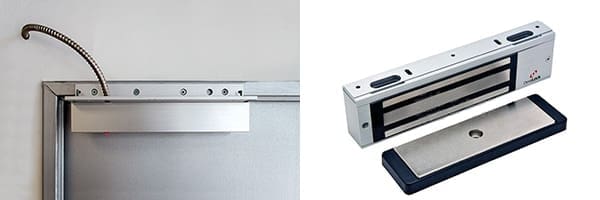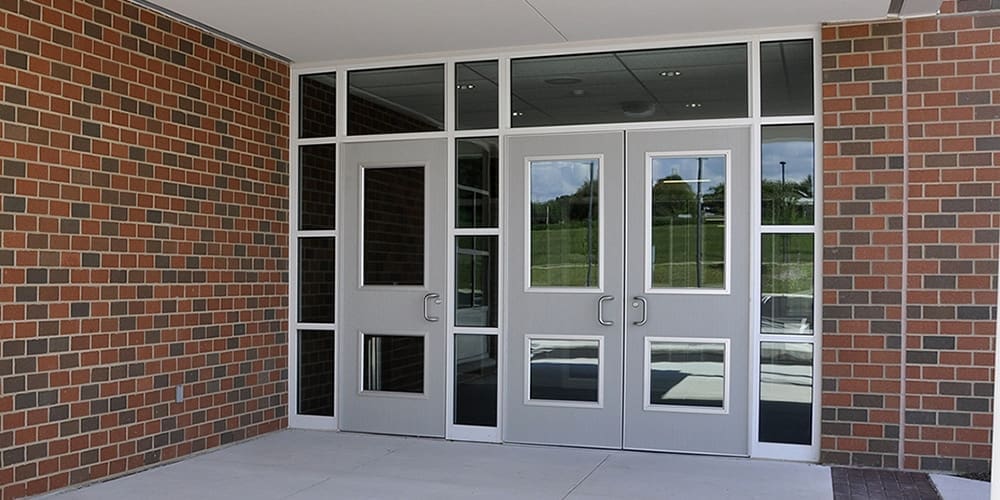Electronic locks provide safety for public and private property alike. Electronic locks can service in many areas. From simply protecting a home to having a gig in the White House, electronic locks have an answer to matters of security. The most secure safes out there use electronic locks. Cars these days are commonly manufactured with an electronic key system. Are there drawbacks to all of this innovation? Do electronic locks really make things safer? What your personal needs are will affect your usage of electronic locks. There are so many varieties to choose from, and some research will help you figure out what lock is right for you.
What are Electronic Locks?
Electronic locks are operated by way of an electrical current. These devices are either fail-safe or fail-secure.
Fail-Safe
In a power outage, a fail-safe lock will open on the in-going side. They will also open if the emergency lock is pulled.
Advantages
- Good for protection during an emergency.
- In an emergency, public places with many entrances and exits can allow people and responders to move freely.
Disadvantages
- The building will not be secure if the power goes out
- The emergency alarm is an easily accessed trigger to all doors unlocking
- Building is vulnerable to crime during a real emergency and drills.
Fail-Secure
A lock that is fail-secure is the opposite of a fail-safe lock. The lock will stay locked regardless of a power outage.
Advantages
- Valuables are protected in an emergency.
- Power failure does not affect lock function.
Disadvantages
- Slows down evacuation when used on doors.
- Gets in the way of emergency res-ponders and large-scale evacuation.
You’ll have to decide whether you want to go with fail-safe or fail-secure. Some buildings have laws prohibiting the use of either of these, so keep that in mind. Here are the different types of electric locks:
Electric Strikes
With electric strikes, the proper entry tool activates a string that manipulates the lock’s bolt. These locks can be either fail-safe or fail-secure depending on its intended usage. You may not have a say in the matter due to building codes. Electronic strikes are either installed on the door frame or on the door that doesn’t move on a pair of double doors. Electric strikes come with override keys that help in the event of an emergency.
Electric Latch Retraction

These locks are fail-secure and work by retracting the bolt due to an electrical current. The bolt won’t budge unless hit by an electric current, so special modifications must be made to prepare for an emergency.
Electro-mechanical Locks

Electro-mechanical locks can be fail-secure or fail-safe. These locks can be opened both by an electrical current and manually. They can also be programmed to unlock during an outage, aiding evacuation efforts.
Electromagnetic Locks

These locks are a common type of magnetic lock. The very nature of this lock means that it cannot be fail-secure. During an outage, the doors will unlock. These locks were first invented as a safety feature that ensured these locks were fail-safe in an emergency. These locks can be opened using a key that disrupts the lock’s electric current, which reestablishes once the door is again closed.
Electronic Modes of Entry
An electric signal is necessary to open an electronic lock. Of course, you’ll need an electronic key! These types of keys aren’t physical though – they can be a password or a pattern or a retinal scan. Each of these methods have their pros and cons to be considered upon installation. Car key fobs and transponder chip keys are an example of electronic ‘keys’.
Authentication Token
These are what you see in use when a member of the museum staff uses a card to access an Employee Only door. The cards are physical devices that are required to manipulate the electric lock. It sure is a pain when you need to get around as a volunteer and you don’t have one of these!
Advantages
- Tokens can be given access at programmer’s discretion.
- Any of these keys can be made null at any time.
Disadvantages
- Tokens can easily be lost
- Tokens can be easily damaged
- These ‘keys’ can be costly to replace
Access Code
An access code is a series of numbers or other symbols entered to open an electronic lock. The codes have many variations, which makes guessing nearly impossible. There are many different ways that an access code can be hidden from those who shouldn’t have access. Get creative!
Advantages
- Just memorize the code and you’re in!
- Each door can be programmed with a different code, as well as the use of master codes
- Guessing is difficult due to variation
Disadvantages
- People can copy the code upon seeing it entered.
- The code can be forgotten or difficult to memorize
- The more codes you have, the easier they can be to guess.
Radio-Frequency Device
RFID (radio-frequency device) locks can be opened from far away using an authentication token. This technology is used with smart locks that can be opened with your phone.
Advantages
- Long range
- Device usage is customizable
- Locks can be virtually ‘rekeyed’ anytime
- The convenience of having a smartphone as a key
Disadvantages
- Can be lost
- Can be damaged
- Possibly expensive to replace
Biometrics
These locks are opened by use of the human body. Biometric locks include retinal scanners, fingerprint scanning and face recognition technology. Just like in the movies! This tech is becoming more commonplace.
Advantages
- No keys to keep track of or codes to memorize.
- You’re the key!.
- The key to these locks can be changed anytime
Disadvantages
- A picture of you may open the lock
- Your lock might turn against you and keep you out!
Summery
As you can see, there are so many kinds of electronic locks. Now you’re equipped with the knowledge you need to make an informed decision about your next electronic lock. Use different locks depending on specific needs. Cover your bases – or a criminal will cover them for you. Although electronic locks are pricey, the right kind of lock can save you lots of money in theft protection over time. Be practical about what type of lock you choose to get; don’t just pick something because it’s newfangled and shiny. Finally, don’t only consider yourself; think about everyone that will be affected by these locks. Stay safe out there!

